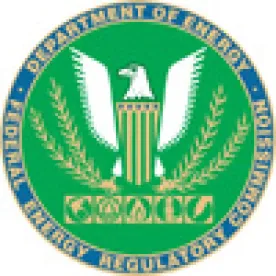On February 15, 2018 the Federal Energy Regulatory Commission (“FERC”) issued a Final Rule addressing participation of energy storage resources in electricity markets operated by Regional Transmission Organizations (“RTOs”) and Independent System Operators (“ISOs”). Largely adopting the proposal issued in November 2016, the Final Rule seeks to remove barriers for energy storage participation in wholesale capacity, energy, and ancillary services markets. The ultimate impact of FERC’s directive will be determined over the next few years as RTOs and ISOs implement the standards through their respective stakeholder processes, compliance filings, and (potentially) litigation. FERC deferred ruling on a companion proposal addressing participation of distributed energy resources (“DERs”) in wholesale markets. In the coming months, stakeholders should carefully consider these measures as there will continue to be opportunities to shape the final outcomes.
Summary of FERC’s Rulemaking
The final rule issued by FERC requires RTOs and ISOs to revise their tariffs to develop a participation model that better incorporates energy storage into the market, including processes that account for the physical and operational characteristics of energy storage systems. FERC mandates that such revisions should:
-
Allow energy storage resources to be eligible to participate in all capacity, energy, and ancillary services markets that the resource is technically capable of providing;
- Ensure that storage resources under the participation model can be dispatched and establish the wholesale market clearing price as a wholesale seller and/or buyer;
- Account for electric energy storage’s physical and operational characteristics (via bidding parameters or other means); and
- Set a minimum size requirement for storage resources’ participation in the RTO and ISO markets of not more than 100 kW.
In addition to these market requirements, FERC also determined that electric storage resources should pay the wholesale locational marginal price (“LMP”) for electric energy that the resource buys from the RTO or ISO (presumably to charge the resource) that is then resold back into the RTO or ISO.
Notably, FERC deferred action regarding wholesale market participation of DERs, which was a significant part of the original proposal. According to FERC, additional information is needed before directing the RTOs and ISOs to further reform their market rules to accommodate DERs. FERC has scheduled a technical conference for April 10-11, 2018, to explore the next steps for better integrating DERs into the wholesale markets.
Next Steps and Implications
FERC’s Final Rule will go into effect 90 days after publication in the Federal Register. Parties seeking modifications of the Final Rule may request rehearing at FERC and could eventually appeal FERC’s rule in federal court.
While the long-awaited Final Rule is a significant development for the nation’s wholesale electricity markets, stakeholders will have additional opportunities to shape how the Final Rule is implemented at a regional level. Each RTO and ISO is required to file its tariff changes to comply with the Final Rule within 270 days of the publication date, and implement its tariff provisions within 365 days from the tariff filing date. To the extent that a RTO or ISO believes that its existing rules comply with part of the Commission’s Final Rule, those RTOs and ISOs will still need to demonstrate compliance with this rulemaking. During that time, interested parties will have an opportunity to review and comment on the compliance filings submitted by each RTO and ISO, and each RTO and ISO will likely hold listening sessions, workshops, or other stakeholder initiatives to examine how energy storage will interact with the regional differences in weather, generation mix, and state policy. Some RTOs/ISOs, like the California Independent System Operator, Inc. and PJM Interconnection, L.L.C., have taken steps to incorporate storage into their energy and ancillary services markets, and it remains to be seen how the Final Rule will advance or modify these existing initiatives. Given the additional stakeholder processes, it will likely take two years or more for the RTOs and ISOs to implement FERC’s directives fully.



 />i
/>i

